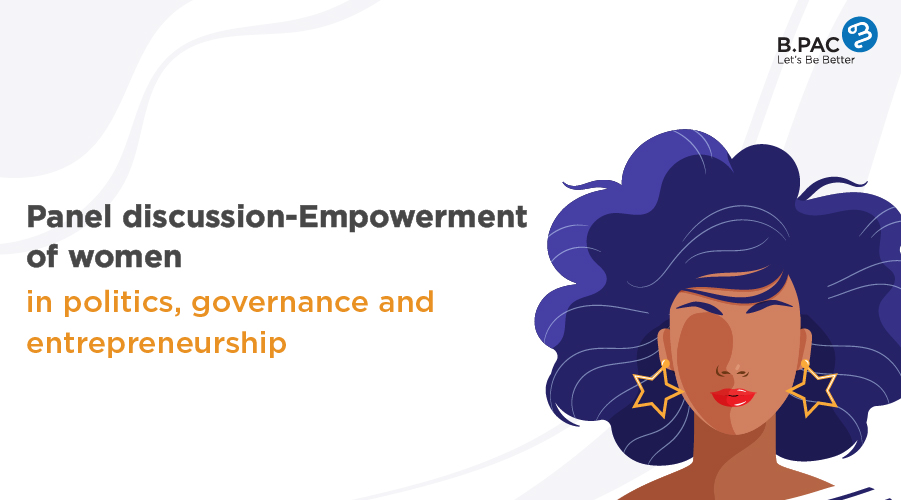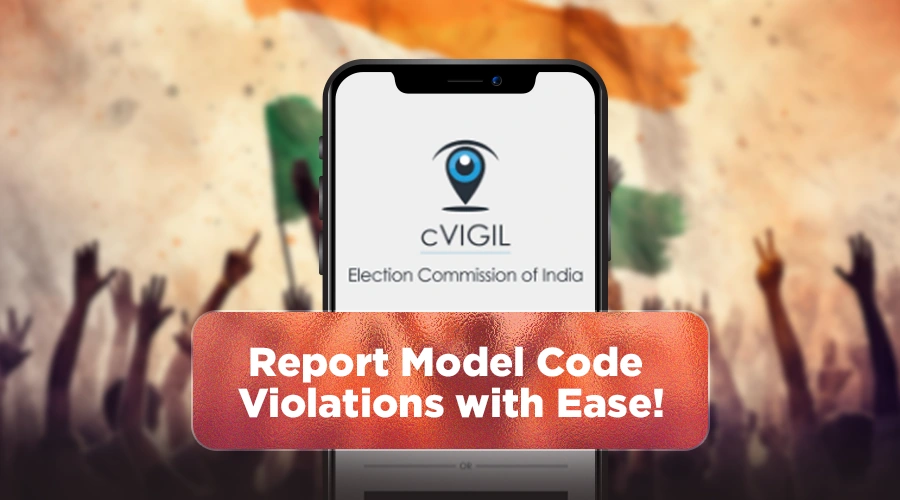Kavitha Reddy
“I wanted to be a change-maker, which is the primary cause that lead me into politics- fighting the negativism surrounding politics”, Kavitha Reddy say. If citizens like her, the youth, do not seek change, people will start to move out of the democratic set-up altogether. Mrs. Kavitha Reddy, B.PAC’s B.CLIP leader felt it her responsibility to fight the growing negativism about politics among the youth.
Mrs. Reddy began her fully fledged activism journey as a citizen journalist. She wrote widely on issues of concern: waste management, public toilets and the like. This in turn gave her a lot of insight into problems that citizens face. Writing about such issues invariably gives an in depth knowledge that may not be available for the layman to grasp. The first major activity that she took up was the cause of Agara Lake which was being fought by two different groups and many active citizens. Kavitha brought them together and this marked the beginning of her journey into the lake activism space.
Passionate about water and lakes, Mrs. Reddy states, “water can also create a war”. Every other issue: green cover of the city, good public health, groundwater table etc., are all very closely linked to the quantum and quality of water. The process of reviving Agara Lake was a fight of good team of citizens that lasted Four years. “The Chief Minister addressed the issue and granted a huge amount of Rs.16 cr for the revival of Agara lake, and the revival process has begun”, Kavitha admits. But still a lot more there is to be done.
Having worked on the revival of Agara Lake and partly on Mangamanapalya Lake now working for revival of Somasundrapalya and few other Lakes that are getting assesses over the years. Kavitha’s dream is to effectively convert them into massive rainwater harvesting systems. Farmers and other users are suffering because Bengaluru is drawing large quantities of Cauvery water; it is important to make water availability sustainable from within the city so that the pressure on Cauvery and other major rivers is reduced.
In a rapidly growing city like Bengaluru, safety (of both, women and children) is an important factor in influencing its further growth. Awareness of this problem is crucial for all, both men and women. It should not only be a priority to law and order authorities, women should also be aware of ways to keep themselves safe and in the know of redressal tools available to them. B.PAC’s women and child safety workshops are a significant initiative in this direction. Mrs. Reddy has herself drafted a women’s safety handbook which she widely distributes.
“We are becoming a city of immigrants; people are pouring into the city not only from other states, but also from within Karnataka.” They come in mostly as labourers. Their “children are not able to access education for various reasons, primarily due to shorter duration of stay in the city, and this is worrisome”. It is therefore necessary that, at least government schools are made more accessible, especially to immigrants of the low income category. Basic education is a must. Ms. Reddy and team carry out audits in schools while simultaneously encouraging parents to send their children to school.
“Generally, citizens are supportive but you need to ask them to join. Participation (in civic activities) is not something you can expect from everybody. There is a certain cynicism that has set in. Fighting such cynicism by itself is a challenge.” Having worked with government and its agencies, Mrs. Reddy’s mission is to make citizens understand, particularly the youth, that government does not work in a push-button manner. Processes take time in the government machinery; patience and persistence is important to see any progress or results in politics.
“To get into politics, you need to be brave.” Bravery in politics is also includes patience. The will to be persistent despite obstacles, is another key to sustain in politics. In addition, one needs to know a little of everything to thrive in politics, which in itself is a time-consuming process.
In the civic space of Bengaluru, more women seem to be taking the lead in dealing with the city’s issues. In fact, when it comes to major concerns like solid waste management; it is women who are providing solutions and logistical power. Issues that exist in this space include dealing with multiple agencies and languages. However, Ms, Reddy did say that in the political space, “being a woman itself is a tough thing.”
It is a known fact that the space itself is very male-dominated. Often, the few women existing in politics is the result of nepotism and not due to true electoral merit. “Sometimes you become a lone fighter in politics just because you are a woman.” Women have to work way much more than men to establish themselves in politics. Another gender- specific challenge that women face in politics, is funding. “It is extremely tough to be an independent woman politician; and this is true irrespective of a woman’s party affiliations.”
Changing of mindsets is probably the first step to resolve gender bias in politics; however, that is a generational change. “Earlier, the acceptance of women was far larger than it is today.” The political leaders that Mrs. Reddy used to look up to during her younger days included many women. “We have gone backward, not forward, in this direction and that is very worrisome.” Secondly, all political parties must push for election of women politicians who are independent, and not controlled by their patriarchs.
Lastly, but most importantly, our parliament must pass the Women Reservation Bill, ensuring 33 per cent reservation for women. Policies and laws that impact women should have women leaders debating and discussing them. Also, important ministerial portfolios should be given to women. Ms. Reddy said that she would want to see a woman Finance Minister, not just the usual Women and Child Welfare Minister. In conclusion, Ms. Reddy expressed, “social justice is directly linked to gender justice; you cannot separate the two. Somewhere, men should let go and allow credibility and merit to decide leadership in politics, not gender. Women who join politics should themselves be prepared for the long haul; not only financially, but also mentally.”
Aspiring to contest the upcoming elections, Mrs. Kavitha Reddy is a leading example of striving, dedicated and persistent woman leader, who has made her way through the gruelling ways of politics and establish herself in the field that is inherently male dominated.




